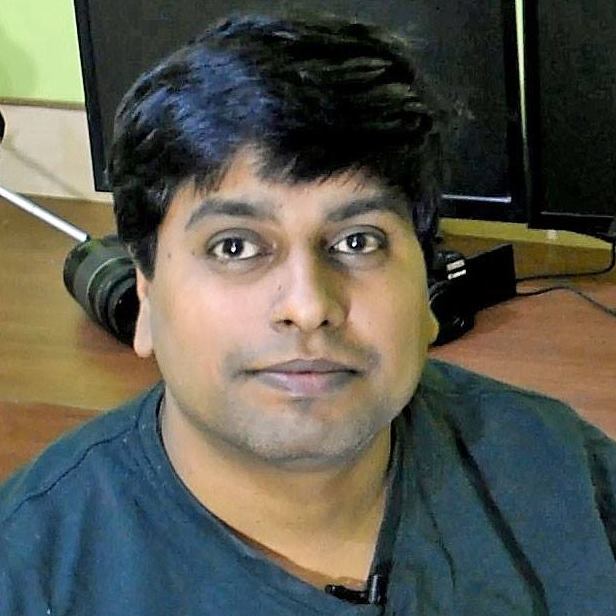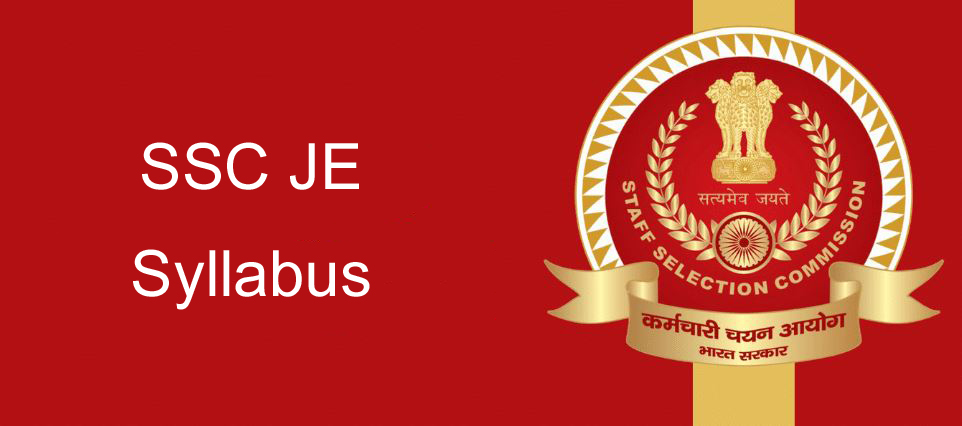The SSC JE 2026 (Staff Selection Commission Junior Engineer) exam is your gateway to exciting opportunities in civil, mechanical, and electrical engineering roles across various government departments. With the official notification expected soon on ssc.gov.in, now is the perfect time to dive into the SSC JE syllabus 2026 and kickstart your preparation.
In this comprehensive guide, we’ll break down the SSC JE 2026 syllabus for both Paper 1 and Paper 2, including subject-wise topics, exam patterns, and pro tips to ace the exam. Whether you’re preparing for SSC JE Civil syllabus, Mechanical, or Electrical, this post has you covered. Download the free SSC JE syllabus PDF at the end and stay ahead of the competition!
What is SSC JE 2026? A Quick Overview
The SSC JE exam recruits Junior Engineers for Group B posts in organizations like CPWD, MES, and BRO. The selection process includes two papers: Paper 1 (objective, computer-based) and Paper 2 (descriptive, also CBT from recent changes). The 2026 exam is projected to follow the 2025 pattern, with Tier 1 in late 2025 and Tier 2 in early 2026.
Key Highlights for SSC JE 2026:
- Eligibility: Diploma/BE/B.Tech in relevant engineering branch; age 18-32 years (relaxations apply).
- Vacancies: Based on 2025 trends, expect 1,500+ posts across branches.
- Salary: ₹35,400 – ₹1,12,400 (Level 6) + perks.
Understanding the SSC JE syllabus 2026 is crucial as it hasn’t changed significantly from previous years. Focus on high-weightage topics to maximize your score.
SSC JE 2026 Exam Pattern: Know the Structure Before Diving In
Before tackling the syllabus, familiarize yourself with the SSC JE exam pattern 2026. Both papers are now computer-based tests (CBT), making it fully online.
Paper 1 Exam Pattern (200 Marks, 2 Hours)
| Section | Subjects | Questions | Marks | Negative Marking |
|---|---|---|---|---|
| A | General Intelligence & Reasoning | 50 | 50 | 0.25 per wrong answer |
| B | General Awareness | 50 | 50 | 0.25 per wrong answer |
| C | General Engineering (Civil/Mechanical/Electrical) | 100 | 100 | 1 per wrong answer |
| Total | 200 | 200 |
- Mode: Online, Objective (MCQs).
- Qualifying: No sectional cutoff; overall merit-based.
Paper 2 Exam Pattern (300 Marks, 2 Hours)
- Subjects: Technical (specific to branch: Civil & Structural/Mechanical/Electrical).
- Questions: 100 objective questions.
- Marks: 300 (3 marks each).
- Negative Marking: 1 mark per wrong answer.
- Mode: Online, Objective.
Pro Tip: Paper 1 is screening; aim for 120+ to qualify comfortably for Paper 2.
Detailed SSC JE 2026 Syllabus: Subject-Wise Breakdown
The SSC JE syllabus 2026 emphasizes core engineering concepts alongside general aptitude. Below, we detail Paper 1 (common for all) and Paper 2 (branch-specific).
Paper 1 Syllabus: General Sections
1. General Intelligence & Reasoning (50 Marks)
This section tests logical thinking. Key topics include:
- Analogies, similarities, differences.
- Spatial visualization, visualization of patterns.
- Arithmetical reasoning, number series.
- Coding-decoding, syllogism.
- Non-verbal series, decision making.
- Abstract ideas, symbolic operations.
Weightage Tip: Expect 10-15 questions on series and analogies. Practice puzzles daily for speed.
2. General Awareness (50 Marks)
Stay updated on current affairs and basics. Topics cover:
- Current events (national/international).
- History, culture, geography, economy.
- General polity, scientific research.
- Sports, books/authors, important schemes.
- Static GK: Environment, inventions.
Prep Hack: Read newspapers like The Hindu; focus on last 6-12 months’ events for 2026 relevance.
3. General Engineering (100 Marks – Branch-Wise Overview)
This is the technical core of Paper 1. Questions are basic, drawing from your diploma/degree level.
- Civil & Structural Engineering:
- Building materials, estimating, costing.
- Surveying, soil mechanics, hydraulics.
- Irrigation, transportation engineering.
- Environmental engineering, concrete technology.
- Mechanical Engineering:
- Engineering mechanics, strength of materials.
- Theory of machines, fluid mechanics.
- Thermodynamics, IC engines.
- Production engineering, industrial engineering.
- Electrical Engineering:
- Basic concepts, circuit theory.
- Magnetic circuits, AC fundamentals.
- Electrical machines, power systems.
- Measurement, basic electronics.
For in-depth lists, refer to the official SSC JE syllabus PDF.
Paper 2 Syllabus: In-Depth Technical Topics
Paper 2 dives deeper into your branch. Prepare with numericals and diagrams.
Civil & Structural Engineering Syllabus
- Building Materials: Physical/chemical properties, classification, uses.
- Surveying: Principles, instruments, errors, curves.
- Soil Mechanics: Properties, classification, compaction, shear strength.
- Hydraulics: Fluid properties, flow measurement, open channel flow.
- Irrigation Engineering: Types, canals, hydrology.
- Transportation Engineering: Highways, railways, traffic engineering.
- Environmental Engineering: Water supply, sewage treatment, pollution.
- Structural Engineering: Theory of structures, RCC design, steel design.
High-Yield Topics: RCC beams, soil compaction (20-25% weightage).
Mechanical Engineering Syllabus
- Engineering Mechanics: Equilibrium, friction, kinematics.
- Strength of Materials: Stress/strain, torsion, columns.
- Theory of Machines: Kinematics, gears, governors, balancing.
- Fluid Mechanics: Viscosity, Bernoulli’s equation, pumps/turbines.
- Thermodynamics: Laws, cycles (Carnot, Rankine), entropy.
- Heat Transfer: Conduction, convection, radiation.
- IC Engines: Cycles, fuels, supercharging.
- Production Engineering: Casting, welding, machining, metrology.
- Industrial Engineering: Work study, PERT/CPM.
Focus Area: Thermodynamics and fluid mechanics (30% questions).
Electrical Engineering Syllabus
- Basic Electrical Engineering: Circuits, Kirchhoff’s laws, network theorems.
- AC Fundamentals: Single-phase AC, power factor, phasors.
- Magnetic Circuit: Concepts, hysteresis, eddy currents.
- Electrical Machines: DC motors/generators, transformers, induction motors, synchronous machines.
- Power Systems: Generation, transmission, distribution, switchgear.
- Measurement & Instrumentation: Errors, transducers, wattmeters.
- Basic Electronics: Diodes, transistors, amplifiers, digital electronics.
Key Tip: Brush up on machine efficiency and power systems (25-30% marks).
How to Prepare for SSC JE 2026: Expert Strategies
- Create a Study Plan: Allocate 40% time to technical, 30% to GK/reasoning, 30% to mocks. Start 8-10 months early.
- Best Books for SSC JE Syllabus 2026:
- General: RS Aggarwal (Reasoning), Lucent GK.
- Civil: SP Gupta, RK Bansal.
- Mechanical: PK Mishra, DS Kumar.
- Electrical: JB Gupta, VK Mehta.
- Practice Previous Papers: Solve 2018-2025 papers to spot trends.
- Mock Tests: Take weekly full-length tests; analyze errors.
- Stay Updated: Follow SSC’s official site for any syllabus tweaks.
Common Mistake: Ignoring negative marking—attempt only sure shots.
Download SSC JE Syllabus 2026 PDF
Get the official SSC JE syllabus PDF here for printable reference. It’s your blueprint to success!
Final Thoughts: Your Path to SSC JE 2026 Success Starts Now
Mastering the SSC JE syllabus 2026 is about smart preparation, not just hard work. With consistent effort, you’ll crack Paper 1 and shine in Paper 2. Got questions on SSC JE Civil syllabus 2026 or branch-specific tips? Drop a comment below!

Hi, I’m Varun Pathak, the founder of TheSarkariNaukri.com—a dedicated platform for the latest updates on government jobs (Sarkari Naukri) in India. With years of experience curating reliable information on job vacancies, admit cards, exam results, and preparation strategies, I help thousands of aspirants navigate the competitive world of public sector opportunities. Passionate about job security, career growth, and empowering freshers for roles like IAS, IPS, and PSU positions, I update the site regularly with actionable insights for 2025 and beyond. Let’s connect to turn your career dreams into reality!
